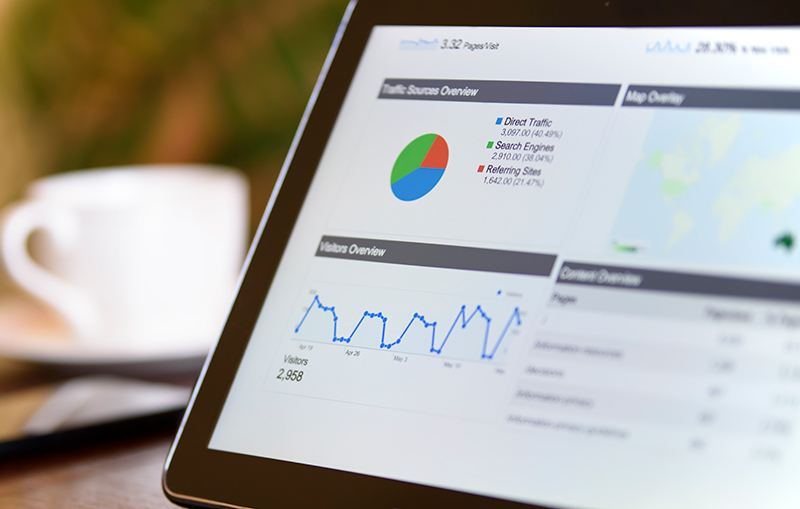Insights

The Keys to Effectively Using Analytics
Analysing your website traffic and user behaviour is a must. The data collected helps you to improve and optimise your website and marketing efforts to get more customers and to increase your conversion rates and sales.
Despite the effectiveness of all the analytic tools available a lot of ecommerce businesses are still not leveraging their data.
We see two major pitfalls:
1)Assuming that classic tools like Google Analytics will automatically track everything out of the box.
2)When analysing data people often only look at a very shallow level of information.
This can lead to a lot of business decisions being based on insufficient information.
What are the Keys to Effectively Using Analytics
The goal is to attract visitors to your site and to convert them into users, leads, customers or fans.
1) Your site is a funnel, not a hierarchy of information. Think of your entire site as a funnel, where your site receives visitors in one end and churns out a percentage of them as customers at the other.
2) To get good answers, start with good questions. Analytics are only actionable if you know what you're looking for, and that means starting with a question. The better the questions, the more valuable the answers. As written by Douglas Adams, "once you do know what the question actually is, you'll know what the answer means."
Start with good questions
Below are a few examples of questions whose answers can be found in analytics data:
- What is the ROI on last month's search advertising spend?
- How does the output of visitors from social media campaigns compare with that of visitors from the email campaigns?
- What's the average output value (revenue) of repeat customers, compared to one-time customers?
- How many people add an item to their cart without reaching the checkout goal? (Also known as cart abandonment.)
- When customers use a promotional code, how does their average purchase value compare with those who did not?
The true value of an analytic tool is in being able to:
- Isolate inputs, outputs, performance, and value (ROI) by dimensions like geographic location, traffic source, marketing campaigns, browser type, and so on...
- Compare the above with different cohorts. For example, what's the value of search traffic compared to social traffic?
- See trends and correlations, such as how search traffic has grown over time, and does that correlate with total revenue?
Google Tools
We recommend installing Google Analytics and Google Webmaster Tools.
Make sure to:
- Configure goals to track primary conversions.
- Add Event Tracking. Eg: Link or phone number clicks.
- Use Segments: Filter the displayed data for users or sessions that match a predefined or custom filter.
Conclusion
At Flux Creative we have been reporting and analysing audience behaviour and ROI on advertising spent for our clients since 2000.
We are a strong believer that business need the right information so they can make informed decisions to achieve the best return on investment.
If you want to know more feel free to contact us to book a meeting.
